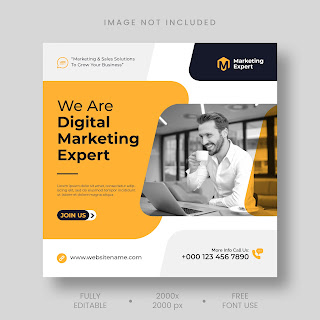The Rise of Digital Marketing Agencies: Why You Need to Embrace the Shift
The digital marketing landscape is shifting and evolving so fast that it’s hard to keep on top of everything. In the last few years alone, we’ve seen a rise in the importance of content as well as an increase in the adoption of AI and machine learning technologies. At the same time, social media has become an important channel for brands to connect with their audiences, and platforms like Instagram have grown into powerful marketing tools for businesses. The fourth quarter of 2018 was one of the most exciting times to be a digital marketer. It marked the rise of new types of agencies that help companies leverage emerging technologies such as blockchain and artificial intelligence (AI) to build their brands online. These new types of agencies are known as digital marketing agencies.
What’s behind
the rise of digital marketing agencies?
Digital marketing agencies have been around for a while, but they have recently grown in number thanks to the rise of new technologies. For starters, the rise of digital marketing is being fuelled by the popularity of eCommerce. E-Commerce sales are projected to increase by 20.9% to $4.8 trillion in 2021, and social media has become an important channel for brands to connect with their audiences. As brands increasingly look to digital marketing to grow their audiences and drive sales, many are turning to digital marketing agencies to help them. Agencies are equipped with the tools and expertise to manage everything from creating and distributing content to analyzing data and improving performance. Another big reason for the rise of digital marketing agencies is the trend toward content marketing. Content marketing is a strategy that focuses on creating and distributing valuable content to attract and retain customers and drive sales. And with the rise of social media, content marketing has become even more important.
AI in digital
marketing
Artificial intelligence is being applied to marketing in many ways, including personalization and content creation. With the help of AI-powered tools, marketing teams can create content that is much more effective, leads are generated more easily, and sales are boosted. And with the advent of the conversational interface, AI is making its way into marketing, even more, making it possible for brands to easily connect with their customers. With artificial intelligence, you can create customized content, dynamic content, and even automated marketing campaigns, making it much easier and faster to do so. AI is helping to boost sales, too. Companies can use AI to create and optimize sales funnels, which makes it easier to get leads and increase sales. And AI can be used to personalize marketing, which makes it easier to connect with customers and build relationships.
Blockchain in
digital advertising
The
technology behind cryptocurrencies like Bitcoin and Ethereum is now making
waves in the digital marketing world, thanks to its potential to address
transparency and fraud issues in digital advertising. Blockchain is an
immutable, decentralized, and auditable digital ledger that’s suitable for
recording transactions of all kinds, including the tracking of ads. With
blockchain, all parties involved in the ad process can see the entire advertising
journey from start to finish in real-time, from how much it costs to place an
ad, and how many times it was seen and clicked. This added transparency is good
news for advertisers, who have grown increasingly frustrated with the growing
ad fraud rates.
Augmented Reality Marketing
Augmented Reality (AR) is a technology that layers digital images and animations over the real world and makes things appear to be something they’re not digital marketing agencies. When applied to marketing, it allows brands to create interactive experiences that can help them connect with their audiences and drive sales. These experiences can range from tutorials and product demonstrations to interactive advertisements. With AR, these experiences can be accessed wherever and whenever, and they can be integrated into existing apps and websites to make them even more engaging.
Virtual Reality
Marketing
Virtual reality (VR) is a technology that creates immersive and engaging experiences by immersing users in a virtual environment that’s computer-generated. When applied to marketing, brands can create experiences that let users step into a simulation of the real world or a fictional environment. These VR experiences can help brands connect with their audiences and drive sales by offering customers a new way of experiencing their products and services. For example, a car manufacturer can create an immersive experience that makes it easier for potential customers to see and feel what it’s like to sit in one of their cars. Or a real estate company can create an experience that lets potential customers walk through a virtual home and see what it’s like to live there.
Bottom line
The digital marketing agencies landscape
is evolving, and with it, the rise of digital marketing agencies. With new
technologies like AI and blockchain, marketers are able to create more engaging
content and more seamless experiences for their customers. The rise of digital
marketing agencies is also being fueled by the popularity of eCommerce and the
growth of content marketing.



Comments
Post a Comment